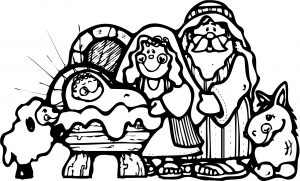For January 1, 2020
At 12:00 AM, January 1, 2020 of the Gregorian  Calendar, we celebrate two thousand and twenty years since the birth of Jesus Christ.1, and thereby acknowledge the birth of the most influential person in human history.
Calendar, we celebrate two thousand and twenty years since the birth of Jesus Christ.1, and thereby acknowledge the birth of the most influential person in human history.
It is also a time when many of us begin the New Year resolving to improve our circumstances by accomplishing identified personal and professional goals we call New Year’s Resolutions.
Exercise, rest, diet, write a book, seek professional advancement, take a trip to an exotic location, spend more time with family and loved ones, are all positive resolution ideas. I feel however, our greatest personal or professional goal is God-centered as Moses observed as he charged Ancient Israel in Deuteronomy 10:12-13 (NLT):
What does the LORD your God require of you? He requires only that you fear the LORD your God, and live in a way that pleases him, and love him and serve him with all your heart and soul. And you must always obey the LORD’s commands and decrees that I am giving you today for your own good.
In our own strength, ultimately we fail since we have live in sin-tainted bodies that move us think, speak, and act—often without provocation—in ways detrimental to others (including God) and ourselves. This, our governing disposition, needs to change before we can experience oneness with God.
The good news is God changes our governing disposition through the Born Again experience or Regeneration, which is the wonderful act of God when He changes the governing disposition of the soul, making it holy and turns the soul to Himself.2
A computer that has been contaminated by a virus may still functions, but not at optimum capacity. However, once the virus is removed, the hard drive is reformatted, and new software installed; the machine can function at an optimum capacity—according to its original design.
Much like this computer illustration, sin contaminated us, and we need God’s spiritual reformatting made available to us through faith in Jesus Christ. His death and resurrection secured our moral and spiritual transformation as well as our eternal reconciliation to God.
Here, by faith we acknowledge our contamination by confessing our sin before God. Then we turn from the continual practice of sinful behavior through repentance. We place our full trust in the Lord Jesus Christ, who installs the spirit-directed software, which enables us to function according to our original design—at full capacity!
With a new, transformed appreciation for God, we can no longer express indifference and ambivalence about our church involvement because we are driven to present a sincere, reverent, intentional Christ-centered way of living that involves our deliberate participation.
Our new life reflects the Spirit’s work within us and our desire to grow closer to God in all phases of our lives. Much like a compass needle that points north because of the magnetic forces, our freedom in Christ points others to the Christ who lives in and works through us.
We also develop a strong sense of piety and reverence toward God while craving a deeper intimacy level in our fellowship with Him. Each day, it becomes easier to invite Him to reign in every area of our lives so that we can reflect His holiness.
God is a life-changing Spirit whose incredible majesty and splendor compel us to revere Him with a sober view of His eternal being. This helps us pursue His moral and spiritual perfection with all sincerity and dedication.
With this Spirit-driven, distinguishable lifestyle, we now can keep our word, speak the truth in love, and ask for help when we need it. Confiding in a pastor, a trusted, mature Christian friend, or a qualified professional can be invaluable to us as we seek to attain spiritual and moral balance.3
In this New Year, let’s live our lives this decade—full of faith—in spiritual, emotional, and psychological harmony with God and others as we grow “in wisdom, stature, and favor with God and others” as did our Lord according to Luke 2:52. Then we can live stellar lives, never resorting to blaming others or using flimsy excuses to escape accountability.
Instead, we ask God for forgiveness, we reconcile with the offended person (or persons), and we practice an improved moral and spiritual lifestyle, just as God intended us to live. Why not begin at 12:00 AM today!



 of the Lord stood before them, and the glory of the Lord shone around them, and they were greatly afraid. Then the angel said to them, “Do not be afraid, for behold, I bring you good tidings of great joy which will be to all people. For there is born to you this day in the city of David a Savior, who is Christ the Lord. And this will be the sign to you: You will find a Babe wrapped in swaddling cloths, lying in a manger.” And suddenly there was with the angel a multitude of the heavenly host praising God and saying: “Glory to God in the highest, And on earth peace, goodwill toward men!”
of the Lord stood before them, and the glory of the Lord shone around them, and they were greatly afraid. Then the angel said to them, “Do not be afraid, for behold, I bring you good tidings of great joy which will be to all people. For there is born to you this day in the city of David a Savior, who is Christ the Lord. And this will be the sign to you: You will find a Babe wrapped in swaddling cloths, lying in a manger.” And suddenly there was with the angel a multitude of the heavenly host praising God and saying: “Glory to God in the highest, And on earth peace, goodwill toward men!” will be upon His shoulder. And His name will be called Wonderful, Counselor, Mighty God, Everlasting Father, Prince of Peace. Isaiah 9:6 (NKJV)
will be upon His shoulder. And His name will be called Wonderful, Counselor, Mighty God, Everlasting Father, Prince of Peace. Isaiah 9:6 (NKJV)
 family situations, and of how long they had been suffering. However, the Bible does tell us that when Jesus arrived, all of them stood at a distance yelling for His attention and assistance: “Jesus, Master, have mercy on us!”
family situations, and of how long they had been suffering. However, the Bible does tell us that when Jesus arrived, all of them stood at a distance yelling for His attention and assistance: “Jesus, Master, have mercy on us!”